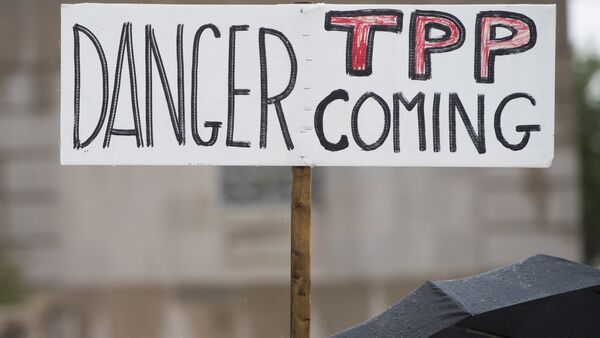MOSCOW (Sputnik), Anastasia Levchenko — The Trans-Pacific Partnership (TPP) free trade deal could bolster trade and investment relations in the Pacific region, Jens Nagel, director general of the German Foreign Trade Association of German Retail Trade (AVE), told Sputnik on Tuesday.
"Agreement on a TPP is a positive and important signal to world trade. As soon as it enters into force, it will add dynamism to the trade and investment in the pacific area through the decrease of tariff- and non-tariff barriers to trade. The nations involved represent 40 percent of the world trade volume, a quantity that cannot be neglected," Jens Nagel said.
Nagel added that the successful conclusion of the TPP deal "is a signal that ending the stalemate in the TTIP negotiations is possible."
TTIP, or the Transatlantic Trade and Investment Partnership is a similar "plurilateral" deal currently being negotiated between the United States and the European Union.
Both deals have been widely criticized by many international organizations and members of government for their secrecy in negotiation, supposed favoring of multinational corporations and exclusion of BRICS countries. Moreover, the deals are considered to have potentially negative implications for workers’ rights, employment, copyright, sovereignty and the environment.




